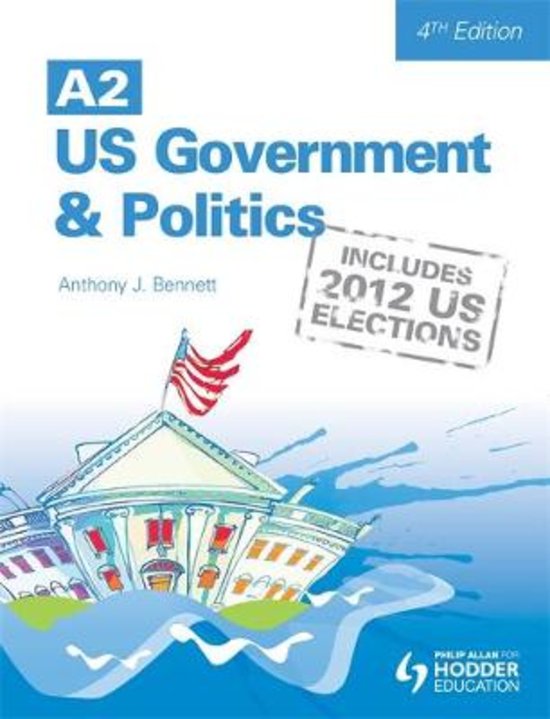Should the Electoral College be replaced by a national popular vote?
Not representative of popular vote:
• Suppresses the popular will, as a candidate with the majority of the popular vote can lose in the
electoral college e.g. Al Gore in 2000 – he wont the popular vote but lost the EC 271-266
• ‘Faithless’ or ‘rogue’ electors exist, whereby they don’t vote in the way their state wants them to –
e.g. Barbara Lett Simmons in 2000 abstained from voting for Al Gore in protest about the lack of
representation for Washington DC
o There have been 80 faithless electors, meaning collectively they have been responsible for
the under-representation of millions of voters
• Evaluation:
o It is very rare for the winner of the popular vote to lose in the EC – has happened only once
in 2000 in the last 125 years; the only other times were 1884, 1872, 1836 and 1824, but in
these cases, American democracy was still finding its feet
o The current system therefore delivers a win for the most popular candidate, as seen most
recently with Obama – 51-47%
o Rogue electors are also not only rare, but they have a negligible impact on the outcome of
the EC vote, and are deemed more of a protest than undermining democracy
Protection against tyranny of the majority
• The founders created it as a bulwark to mob rule, and electors act as a rational barrier between the
popular vote and the presidency
• Evaluation:
o This undermines representative democracy
o The fact that it had to go to the Supreme Court in 2000 shows that it is a corrupt system, that
is rigged in favour of a few small states – tyranny of the minority instead
Smaller states are over-represented:
• Every state gets at least 3 EC votes – this inflates the importance of these smaller states, that
collectively can have significant influence
o In 2012, the 6 least populated states had the same number of EC votes as Ohio (18), but
Ohio’s population was 3x that of the smaller states combined – overrepresentation of small
states
o An EC vote in California is worth 210,000 voters, but one in Wyoming is worth just 66,000
• Evaluation:
o These smaller states are often neglected by the candidates, as they are usually forgone
conclusions – therefore, they get no media coverage or attention, which atones for their
larger influence and less money is spent in the smaller states
o If the EC was replaced with a national popular vote, then the campaign may concentrate
even more in the highly populated urban towns – either way, small rural states get
neglected, but with the EC at least they have some influence
Disadvantage to third parties:
• The EC – and the fact that it will always produce a two-horse race – means that third parties are at
a disadvantage from the outset, as there’s no way they can spread their influence across enough
states to have any influence in the EC
• This adds to the many factors working against third parties
• Evaluation:
o Third parties would fare no better under a national popular vote, as they are spread too
thinly to garner any influence – either way, they lack influence
o Third parties would also be to the detriment of the ‘two horse race’ idea, and would weaken
the mandate by spreading the vote
The Electoral College inflates the popular vote:
• By inflating the real result of the popular vote (over-representing it), it creates the sense of
legitimacy and a greater mandate for the President, allowing the public to unite behind the eventual
winner





